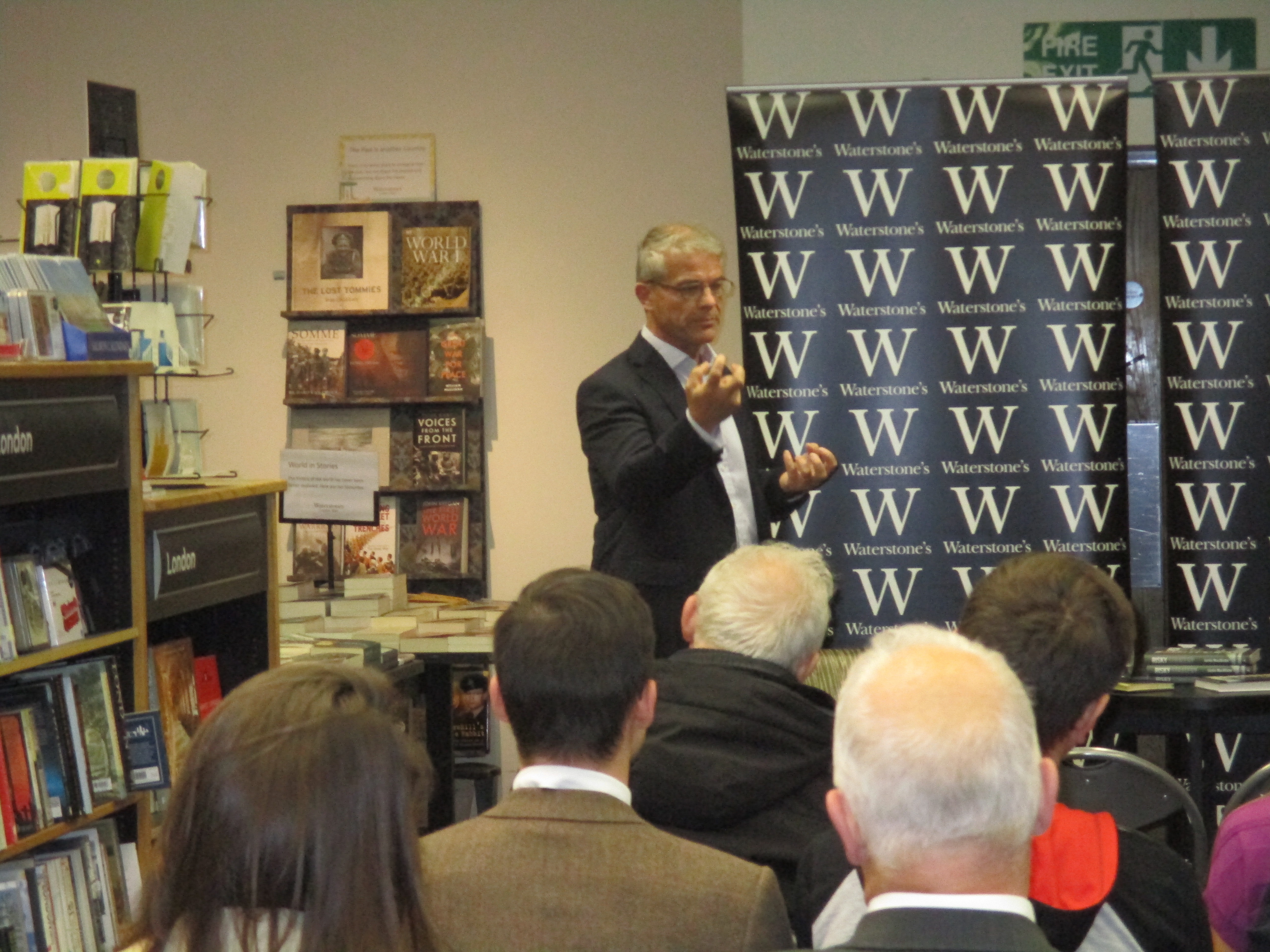The latest installment of our Inspiring Professors Series focuses on Jamie MacAlister, Professor of Global Strategy on the Hult Undergraduate program and Executive Coach for the MBA, EMBA, and Executive Education programs. Jamie, who has an MA from Cambridge University, an MBA from Wharton, and extensive experience with major companies including PwC and P&G, is passionate about facilitating economic growth in Uganda. His approach is two-fold: he is striving to improve both local commerce and education within the region.
This year, Jamie will be taking time out from teaching at Hult, and travelling with his wife, Jenny, to help set up a radical new business school with a focus on practical education in Kampala, as well as continuing to strengthen ties for his various trade endeavors.
Facilitating world-class education in Uganda
Jamie first traveled to Uganda on a charitable mission over ten years ago, when he provided business coaching to local entrepreneurs. And his interest in the region has steadily evolved since then. His hometown church has helped to build and support a school in the Katwe slums of Kampala, made famous recently by the Disney film, ‘Queen of Katwe.’
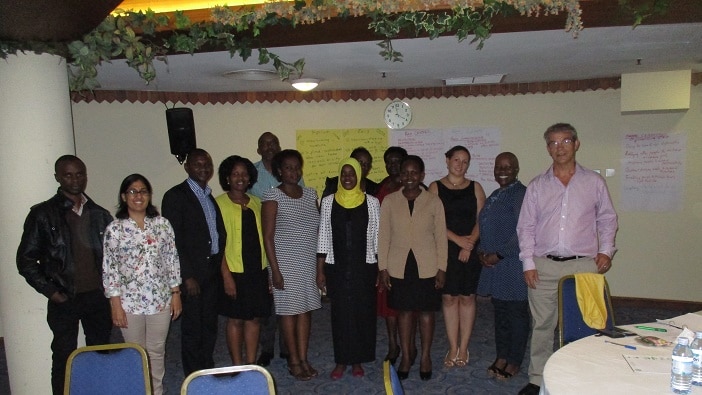

Now, with a vision for establishing world-class business education opportunities in Kampala, Jamie has teamed up with The Clarke Group to improve the quality of business education available. The Clarke Group have already established the International Health Sciences University (IHSU) in the region, and are turning their attention to business education. By providing good quality, practical business education, Jamie hopes the local population will harness this expertise and bring an increase in profitable trade to the region. In turn, his goal is that the school will eventually attract students from across the Sub-Saharan African region and ultimately the developed world. All this will contribute to transforming the Ugandan economy and making an impact internationally.
Jamie is a firm believer in the power of business to bring about positive social change:
“Business is increasingly global in nature. In my view, some of the biggest issues in the world today—poverty, sickness, scarce resources—can be solved through business and an enterprising mind-set.”
This is something he considers in detail in his recently published book Risky Strategy.
[Tweet “Is business destined to be part of the problem, or part of the solution?”]


Enabling self-sufficiency— the only viable long-term solution
Jamie’s connections with Trade not Aid underline his belief that Uganda would benefit from less dependence on aid and more self-sufficiency in terms of trade and income. This highly fertile and oil-rich region has massive untapped potential, he says, but the skills and capabilities of leveraging it are currently lacking. Interestingly the region has demonstrated the ability to lead global innovation and leapfrog technology in Mobile Banking. East Africa is a world leader in Mobile Money because most people don’t have bank accounts but they do have cell phones. He says that this, combined with the significant health needs of the region, are leading to other opportunities for East Africa to leapfrog the developed world in areas like Mobile Health.
[Tweet “Mobile diagnosis apps are being developed to enable medical diagnosis based on breath composition.”]
“The need for low cost solutions is that much greater here. Big names like Microsoft are investing in the region with an interest in addressing global diseases such as malaria.”
By bringing world-class education to Uganda, Jamie hopes to help equip the local population with the ability to bring success to their own communities.
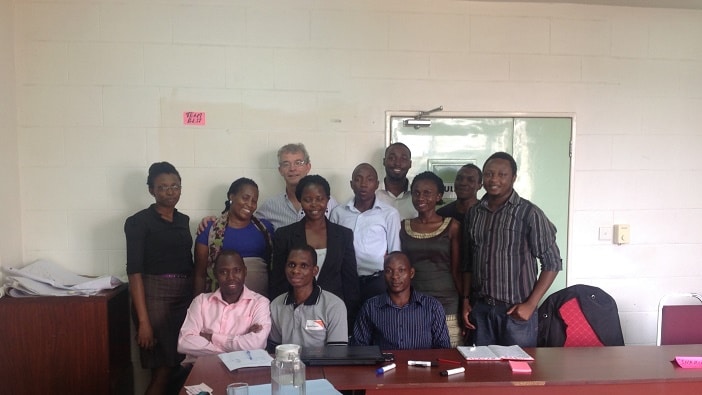

Leveraging endemic resources
Most recently, another opportunity has landed on Jamie’s entrepreneurial radar: the rich resource of Sub-Saharan health-based agricultural products.
Jamie’s interest was piqued when he heard about tree planting initiative Our trees, our future. This organization has already planted over 1 million seedlings in villages around Uganda to help local communities increase their income from fruit.
After hearing about this, Jamie and a colleague turned their attention to an undiscovered local health product called Moringa. Jamie describes Moringa as the most nutritious plant on the planet, growing in a few (hot) countries around the world, with the biggest producer currently being India. It is reputed to have positive benefits for diabetes, asthma, and possibly even cancer, and is currently the subject of a number of clinical trials worldwide.
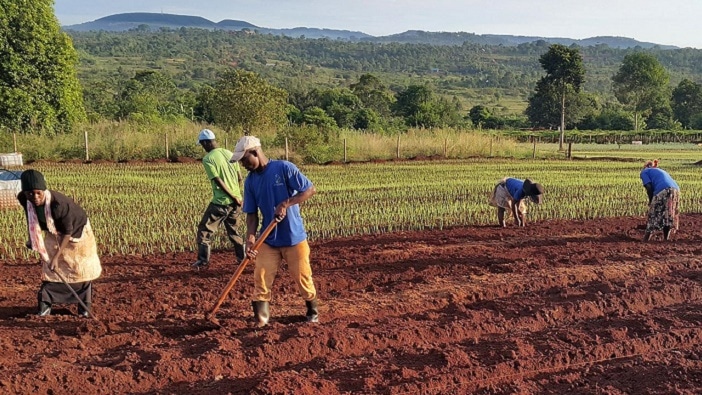

Jamie agreed to help find an overseas market for Moringa. This led him to form a partnership with Aduna—the leading marketer of Moringa in the UK and largest supplier to health food giant Holland & Barrett. They also re-export their products to 18 other countries in Europe, the Middle East, and Far East—remarkable given the relatively small size of the company. Aduna’s vision is to create demand for health plants from the African Sub-Saharan region. And this is the essence of the “Trade not Aid” idea, explains Jamie—any aid money should be spent on creating demand, rather than growing products that end up getting abandoned because nobody wants to buy them:
“I see an opportunity to connect Aduna with Moringa suppliers in Uganda and create investment in local processing as well as growing.“
Nick Salter—one of the founders of Aduna—was recently one of Jamie’s guest speakers at Hult in his Global Strategy class. He is also passionate in his belief in ‘fair trade not aid’ as the solution. He notes that a lot of aid to agricultural projects fails to deliver sustainable benefits to the targeted economies because it fails to generate demand for the produce. And because they are project-based (ie time-limited), when the money runs out, the development unwinds – e.g., trees are felled or abandoned. Much better, he argues, for aid to be directed at creating demand in developed economies for these products. This is what Aduna spend significant amounts of their investors’ money on. And they are seeing significant social impact as a result.
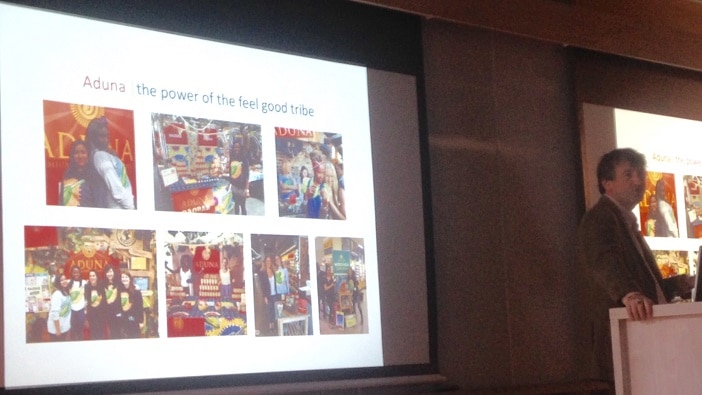

So—Is business destined to be part of the problem, or part of the solution?
Jamie explains that this question is at the heart of his research into modern slavery, undertaken as part of a team on behalf of Hult, in partnership with the Ethical Trading Initiative.
Participating companies included Asda, BA, Coca Cola, Jown Lewis Partnership, Tesco, Sainsbury’s, The White Company, SABMiller, Co-Op, and many others.
77% of the companies surveyed believed that modern slavery could be happening somewhere in their supply chain, due to the chains being so complex. This is a global issue involving NGOs, businesses and Trade Unions. How can businesses go from being a cause of this problem to becoming the solution? Taking Moringa production as an example, Jamie believes that by being more creative at both ends of the supply chain, grave exploitation can be mitigated. For example, enabling the suppliers not just to pick the fruit but to process and package it too, creating more value, more jobs, and fairer rewards for the supplier.
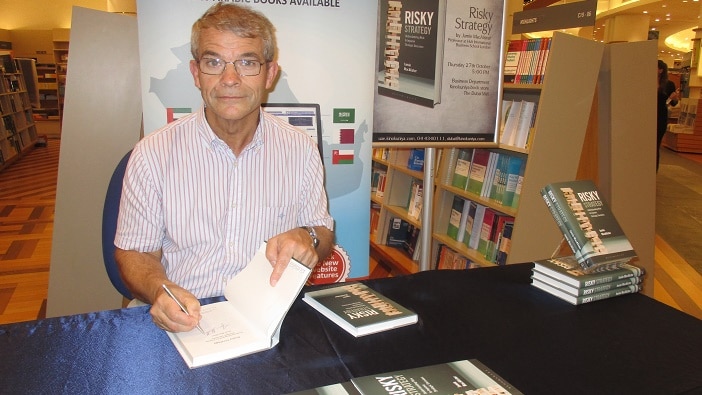

Realizing Uganda’s value
Jamie sees Uganda as a central and extreme case of untapped potential in Sub-Saharan Africa. He quotes Winston Churchill, who saw Uganda’s potential over 100 years ago, when he famously referred to the country as “The Pearl of Africa”—a pearl of great price, which in the last hundred years has somehow managed to elude realizing that value.
“Since I first started visiting Uganda over ten years ago,” Jamie says, “I have been mulling over the idea of an ‘exchange of riches.’ Rather than this western idea that Africa needs ‘rescuing’ – mostly with aid – I see countries like Uganda have something special to offer the rest of the world. We bring our riches in terms of expertise to help release that. Jenny and I draw from a phrase once spoken about a biblical princess called Esther: ‘For such a time as this’—we feel our skills and experience can be useful to release something powerful!”
We wish Jamie and Jenny all the best and look forward to catching up with them later in the year. And, of course, to having Jamie back in the classroom next September to share his learnings and experiences!
Find out more
Learn more about Jamie’s recent book, Risky Strategy
Take an online assessment and discover your risk taker profile at Blonay, Jamie’s company website
Visit Jamie’s blog
Find out more about Hult’s Research on Modern Slavery in partnership with the Ethical Trading Initiative
Download a copy of the Research Report into Modern Slavery


Make the most of what your career has to offer with a Masters in International Business from Hult. To learn more, take a look at our blog Meet the Hult alum set to transform the service industry across South America, or give your employability a huge boost with an MBA in international business. Download a brochure or get in touch today to find out how Hult can help you to explore everything about the business world, the future, and yourself.


